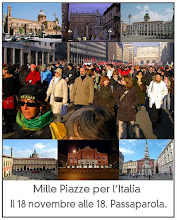Senator John McCain presents himself as a what-you-see is what-you-get presidential candidate: clean, pragmatic, following his convictions even when not politically expedient. He considers himself to be someone who would make an excellent foreign policy president. But this image sits in contrast with the International Republican Institute (IRI), for which McCain has served as board chairman since 1993. Under the cover of spreading democracy and a free market economic system, the IRI installs U.S.-friendly governments and undermines those that are not by supporting coups and ousters.
Formed in 1983, the IRI is one of several umbrella organizations under the National Endowment for Democracy (NED), created by the Reagan administration in 1983. The NED was formed at a time when CIA covert action was coming under increasing scrutiny, prompting its critics to see it as a surrogate for covert action.
The Nation in 2002, for example, argued that the “NED was designed to run a parallel foreign policy for the United States, backing and assisting entities that Washington might not be able to officially endorse.” The IRI is funded by U.S. tax dollars to the tune of $75 million a year.
IRI activities in countries like Haiti and Venezuela are more controversial. In Haiti, even those opposed to Jean-Bertrand Aristide would agree that he was democratically elected. Yet the IRI consolidated democracy against him leading to his violent ouster. Mother Jones reported that “several of the people who had attended IRI trainings were influential in the toppling of Aristide.” Today, Haiti is more poor, divided and violent, and less democratic than it was at the time of Aristide’s ouster.
In 2002 the then-IRI president George Folsom is reported to have applauded the failed Venezuelan coup against President Hugo Chavez. "Last night, led by every sector of civil society, the Venezuelan people rose up to defend democracy in their country," he said in a statement the IRI released.
Not expecting the coup to fail, he went on to proudly claim that the role of the IRI had been to “serve as a bridge between the nation's political parties and all civil society groups.”
It’s not surprising that Egypt views the IRI with so much suspicion that in 2006 it asked the IRI to suspend its efforts at democracy building until it received official permission.
Egypt isn’t an emblem of democracy, but as it turns out, neither is the IRI. As the board chairman of this outfit, McCain would have some trust issues in international gatherings right from Day One if he were to win the U.S. presidential election.
The questions that McCain needs to answer are obvious: As board chairman has he been fully aware of the more covert IRI activities? As president, would he endorse a coup if he felt the end result would be a democratic government friendly to the United States? Is the IRI fully accountable and transparent to the American people? As President, would he continue to fund the IRI without an investigation into its mandate?
domenica 3 agosto 2008
Iscriviti a:
Commenti sul post (Atom)

Nessun commento:
Posta un commento